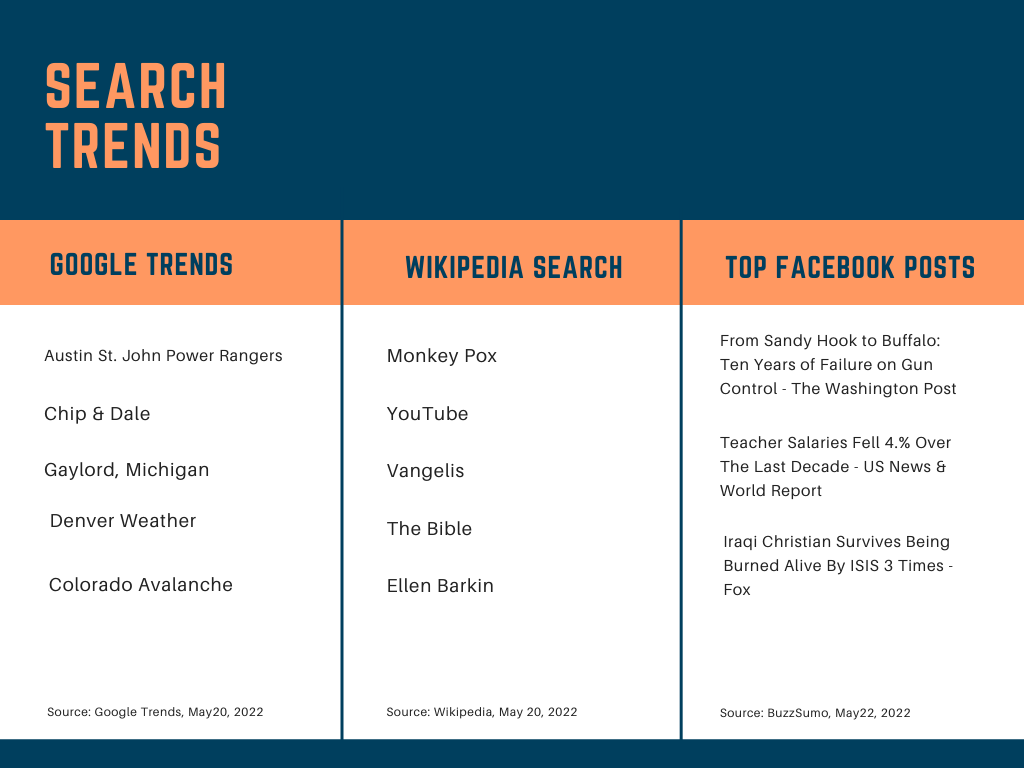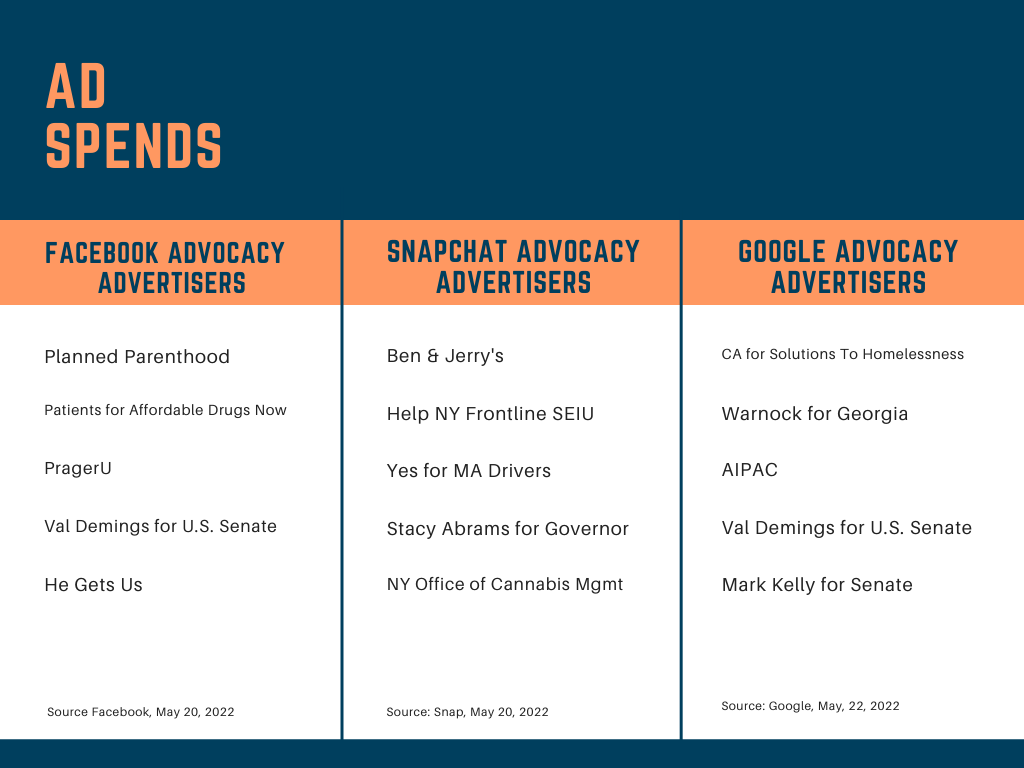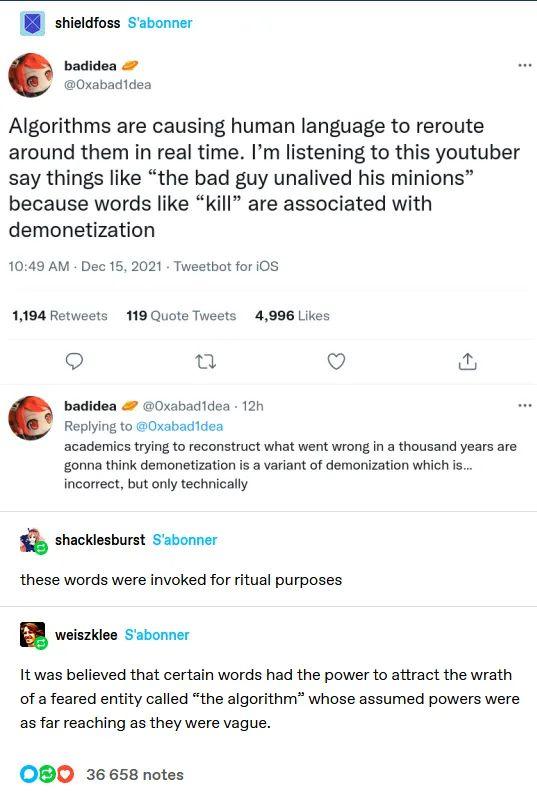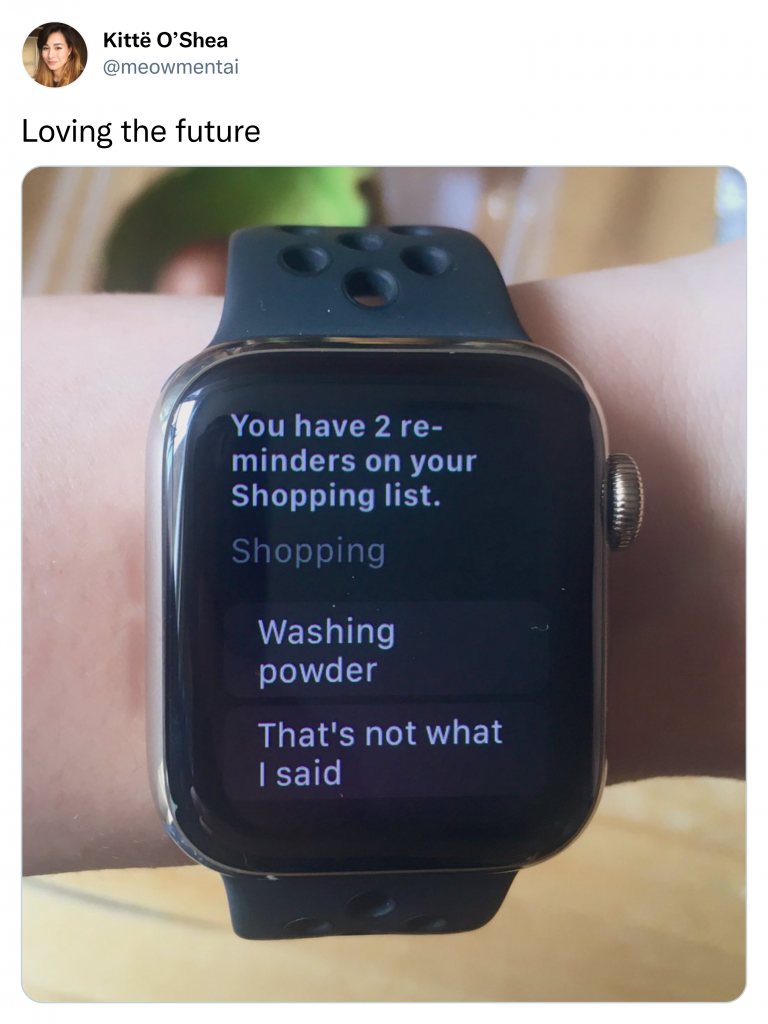
Good Monday Morning
It’s May 23rd although much of Colorado saw snow last Friday, including 8 inches in Boulder and even a couple of inches in Denver.
Housekeeping note: we’re off next week for Memorial Day. It’s a three-day weekend for many people, but remember that there have been 6,894 U.S. service members killed in combat during the past twenty years. Please spare some thoughts for them, their families, and friends.
Today’s Spotlight is 1,252 words — about 5 minutes to read.

News To Know Now
Quoted: “After Abbott Laboratories recalled several powdered formulas in February, leading to nationwide shortages, parents began submitting requests to stock-monitoring platforms including NowInStock.net, ZooLert.com and HotStock.io. The websites … run software that recurrently checks inventory at major online retailers.”
— Technology reporter Dalvin Brown writing in The Wall Street Journal last Wednesday
a) A Grubhub promotion in New York went horribly wrong last Tuesday. A $15 free lunch promo code advertised in the nation’s largest city led to 6,000 orders per minute. BuzzFeed spoke with a bagel shop that averages fewer than 10 orders each day, but received 50 from Grubhub in the first hour.
b) Google and a Harvard sociologist have announced that the company will begin using a 10-shade scale to represent diverse skin tones in its products. Google will also make the scale free to others so it can be used in non-Google products.
c) Google will also help you practice for job interviews. Along with their new free technical online courses, they’ve launched a free practice interview website where a chatbot transcribes your answers to questions and then an algorithm analyzes your replies. I did three practice sessions last week, and I’m not even looking for work.

Trends & Spends
Welcome to our newly revamped section showing hot Google searches and the advertisers spending the most — with a little dash of social and search engine news.


Going for The Duopoly: eMarketer was out last week with a nice analysis showing that the Google-Facebook advertising duopoly is seeing lots of activity directly below from Alibaba, Amazon, and TikTok-parent ByteDance.


Spotlight Explainer: Social Media Crisis Communications
After each national crisis, very often a massacre, the big tech companies face a social media crisis. There are many reasons to criticize giant technology companies, but they are not often the reasons that you hear about.
Stopping People From Uploading Horrors
Following the shooting of thirteen people in Buffalo, The Washington Post was not alone when it headlined that “only twenty-two people” were watching the livestream as it unfolded, and Twitch executives were able to halt the live video within two minutes. Yet millions of people later saw the video, and this somehow got laid at the feet of the tech companies.
Facebook challenged the article’s criticism saying that it had experienced adversarial instances of users breaking the site’s rules. Many times, those people alter the video to evade the company’s software. They can also link to a third party site that hosts the actual video to obscure the video from a Facebook or YouTube software program designed to stop it.
That thousands of people attempt circumventing these program after these horrific events is more of an indictment of them than the social media companies. Millions of hours of video are uploaded daily. Much of the content is benign — a baby’s first steps, a swim meet, or a birthday party. And some of it is horrific pornography or suicides. The same technology that allows you to livestream from a family picnic to absent relatives also lets horrors be livestreamed.
Texas Law Overreaches
Yet some states are attempting to legislate social media companies in ways that will make moderation more difficult. A new Texas law forbids social media companies from moderating content based on a user’s “viewpoint.”
More than twenty advocacy groups including the ADL, Stop Child Predators, and the NAACP have filed a brief with the Supreme Court that cautions about the new law’s overreach. In part, the groups say that Texas’ law may result in not blocking children from age-inappropriate content and increasing the amount of financial fraud online. Those are example of a social media crisis caused by legislation.
Twitter Launches Crisis Misinformation Policy
Only last Thursday, Twitter waded into the fray with a new “Crisis Misinformation Policy” that will lead the platform to hide inaccurate tweets behind a warning label. Those tweets will then be unable to be retweeted, liked, or commented upon. But as Facebook and YouTube have described, there will be plenty of people on Twitter who post slightly altered images of inaccurate tweets.
Also remember that Elon Musk has made an offer to buy Twitter that the Twitter board has said it intends to enforce despite his subsequent reluctance. As the new owner, the capricious Musk could end this or any other Twitter policy at will.

Did That Really Happen ? — New Disinformation Governance Board Pilloried, Paused
An onslaught of complaints from conservative media sources caused the U.S. government last week to announce that its “Disinformation Governance Board” would be “paused.” NPR interviewed Nina Jankowicz, who quit Wednesday as the new board’s leader. She described the board’s mission as “to coordinate among the Department of Homeland Security’s components — agencies like FEMA or the Cyber and Infrastructure Security Agency or Customs and Border Patrol — and make sure that Americans had trustworthy information about issues connected to homeland security.”
The opposition to the board was almost exclusively from conservative media outlets. The Washington Post reports that approximately 70 percent of Fox News’ one hour segments for a week mentioned the board or Jankowicz. Those reports fed conservative pundits online in social media, resulting in multiple violent threats to Jankowicz along with lots of bigoted and misogynistic public comments.

Following Up — $397 Checks Roll Out To Illinois Residents
We reminded you last week that Facebook was preparing to make good on its $650 million settlement with Illinois residents over the company’s facial recognition software. Illinois Facebook users began receiving their $397 payments last week.

Protip — Record Calls On Your Android
Google has slowly been removing the ability for Android users to record telephone calls on their devices. As of May 11, the company has now blocked third party apps from being able to record calls on Android phones. If you really must have that functionality, Lifehacker descibes how to do it (for now).

Screening Room

Science Fiction World — A Robot Moves in With Penguins
Scientists studying climate change’s effects have been monitoring an Emperor Penguin colony in Antarctica for thirty years. In order to remove any human interactions from the colony, researchers deployed a robot called ECHO. Scientists say that they planned to camouflage the robot to look like an ice formation, but that the penguins were curious about the robot and undisturbed by its presence. Now it just needs to learn how to eat fish. See ECHO and his bird buddies at Live Science.

Coffee Break — Extraordinary Elizabeth Bonker
Elizabeth Bonker is this year’s Rollins College valedictorian. She has non-speaking autism and communicates solely by typing. You can watch her commencement address or read the transcription for a healthy dose of inspiration.

Sign of The Times




